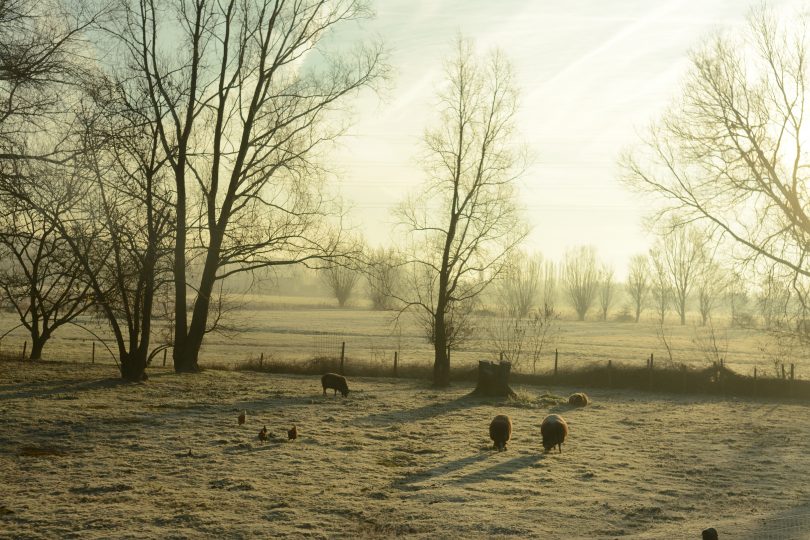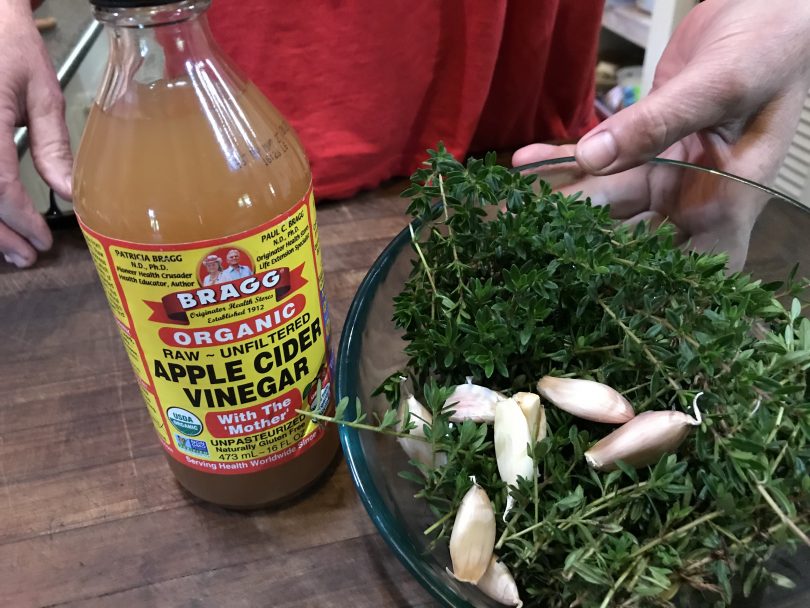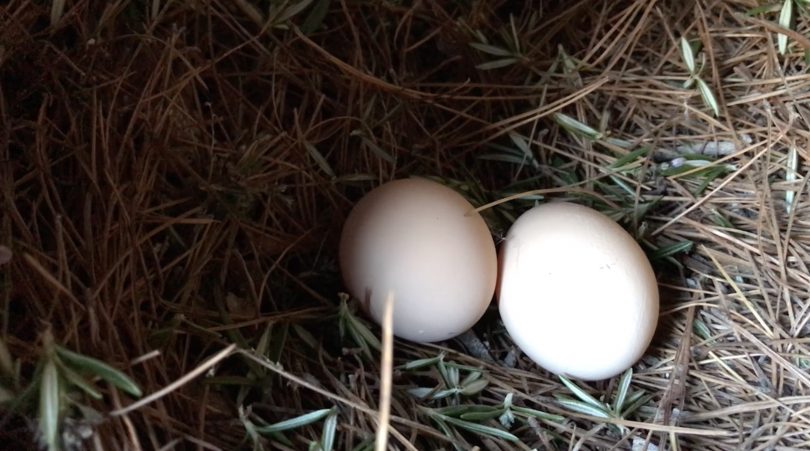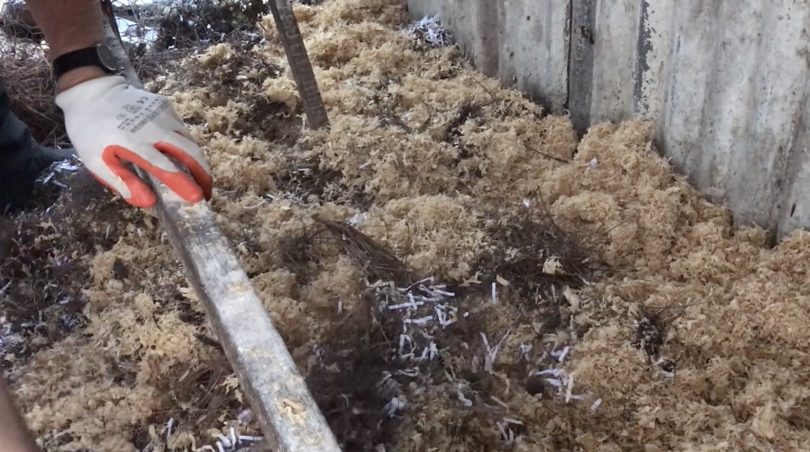
Winter Farmyard. Photo: Shutterstock.
Deep litter in a chicken coop develops its own biome (bacterial culture), which acts to reduce insect pests, diseases like coccidiosis and unwanted moulds. The biome helps to decompose manure which reduces the amount of maintenance.
Here are the steps to clean the coop and make a healthy, natural deep litter on the floor…
Step One
Make a sweet smelling, natural cleaning spray. To a large jar, add the peels of one lemon or some lemon oil, a big handful of fresh thyme, a couple of squashed cloves of garlic and white vinegar to cover the solids in your jar. Let the jar sit for 1 to 3 weeks, shaking the contents every few days until the mixture is fragrant and the vinegar scent is gone, then strain.
Alternatively use the peels of one orange, a couple of cinnamon sticks, and a couple of fresh vanilla beans or lime, lavender, and mint (which helps to repel mice who don’t like mint) or pine and cinnamon.
Spray perches, nesting boxes, nooks and crannies with your spray. Scrub and scrape with a stiff brush and paint scraper, respray to rinse off solids.
If you find mite infestations use a pyrethrum spray to kill them.
Replace nesting material with dry pine needles or fill with solid stems that don’t house mites. Add stripped rosemary leaves or lavender, oregano, or any of the mint family to deter bugs.

Spray ingredients. Photo: Geoffrey Grigg.
Step Two
To start your deep litter, empty and scrub down the coop (as above) so you (and your flock) can start with a fresh slate. Scrape any manure to one side and keep to add later.
Deep litter coop maintenance is all about balancing the beneficial microbe levels to allow the manure and litter to decompose in the coop. It means less coop cleaning, a healthier flock, a warmer flock through winter and a rich garden compost for spring!
The build method is to create layers with dry ingredients. It’s not ‘deep litter’ unless it’s at least six inches deep.
Add agricultural lime to the base and again half-way up the pile. Be careful to cover the ag lime, it can mildly burn your chicken’s feet.
Then add layers of pine shavings and other dry materials like pine needles, dry lawn clippings, shredded paper, dryish seagrass, autumn leaves, and other dry ingredients.
Some people use straw or hay in their deep litter coops with success but watch for mould and dampness.
As chickens roost above the deep litter, manure may cake. Caked manure can go anaerobic, which releases ammonia, which is a toxic gas. So once or twice a week, use a hoe to completely stir up all the shavings and droppings. You can get your chickens to help with this part by tossing scratch or treats into the coop that they will have to scratch around to find. But you will still want to be in turning it yourself at least once a week so that you can access the condition of the material.
Deep litter has anti-coccidiosis properties after it’s been around for a few months, building its own unique biome, so never remove all of it. When you start bumping your head on the rafters, remove most of it!

Pine needle nest. Photo: Geoffrey Grigg.
Finally…
Your chicken house should allow for quite a bit of airflow.
Deep litter must be combined with a fresh-air poultry house. Closed housing will build up ammonia levels that are far too high. Even in the brooder house, ventilation is essential. Just keep the wind-chill factor down by limiting drafts at floor level, to prevent chilling the chicks.
Once you get a feel for deep litter housing, you soon realise it makes a better growing environment for your flock and you.

Deep litter in the coop. Photo: Geoffrey Grigg.
Cheryl Nelson is the brains and heart behind Natural Chicken Health.
Subscribe HERE to the Natural Chicken Health Monthly Newsletter Vlog and follow Natural Chicken Health on Facebook.







